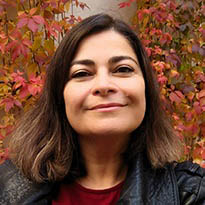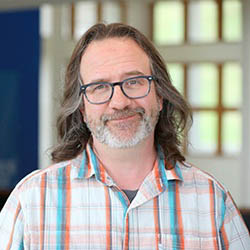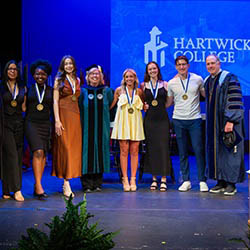NEH Visiting Professor Teaches Surveillance, Encourages Creativity
From mock newspapers and Instagram ads to media literacy and L’il Nas X, students in Vuslat D. Katsanis’ “Monitor Culture: Screens, Surveillance, Speed” course applied their lessons in some very creative ways.
“When was the last time you knew you were being watched?” asked Saniah Reeves ’26, as she introduced her final project, a board game called Welcome to the Watch, which pits players against data leaks, targeted ads and AI images. “Surveillance isn’t always visible – it hides in convenience.”
But there’s a twist: no matter what choices the player makes, they can’t win the game. “It’s about being aware and resisting where needed,” she said. “Media literacy is a survival skill. Games can teach us what lectures can’t.”
Katsanis, a National Endowment for the Humanities (NEH) visiting associate professor, specializes in comparative literature, film and visual culture, with a particular focus on Turkish and global migrant cultural productions, and critical theory. She is also the co-founding director of publications and curator of contemporary art at the Zurich-based art and research initiative, MinEastry of Postcollapse Art and Culture (MPAC), an assistant editor of poetry at Asymptote and the co-editor of A Socially Just Classroom: Transdisciplinary Approaches to Teaching Writing Across the Humanities (Vernon Press, 2022).


